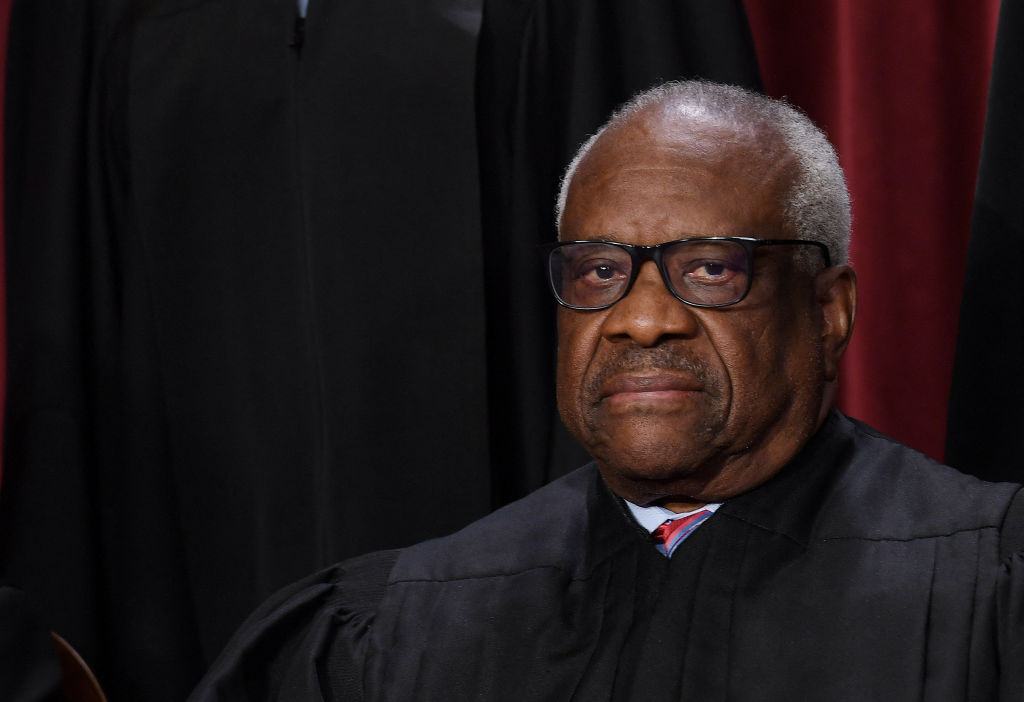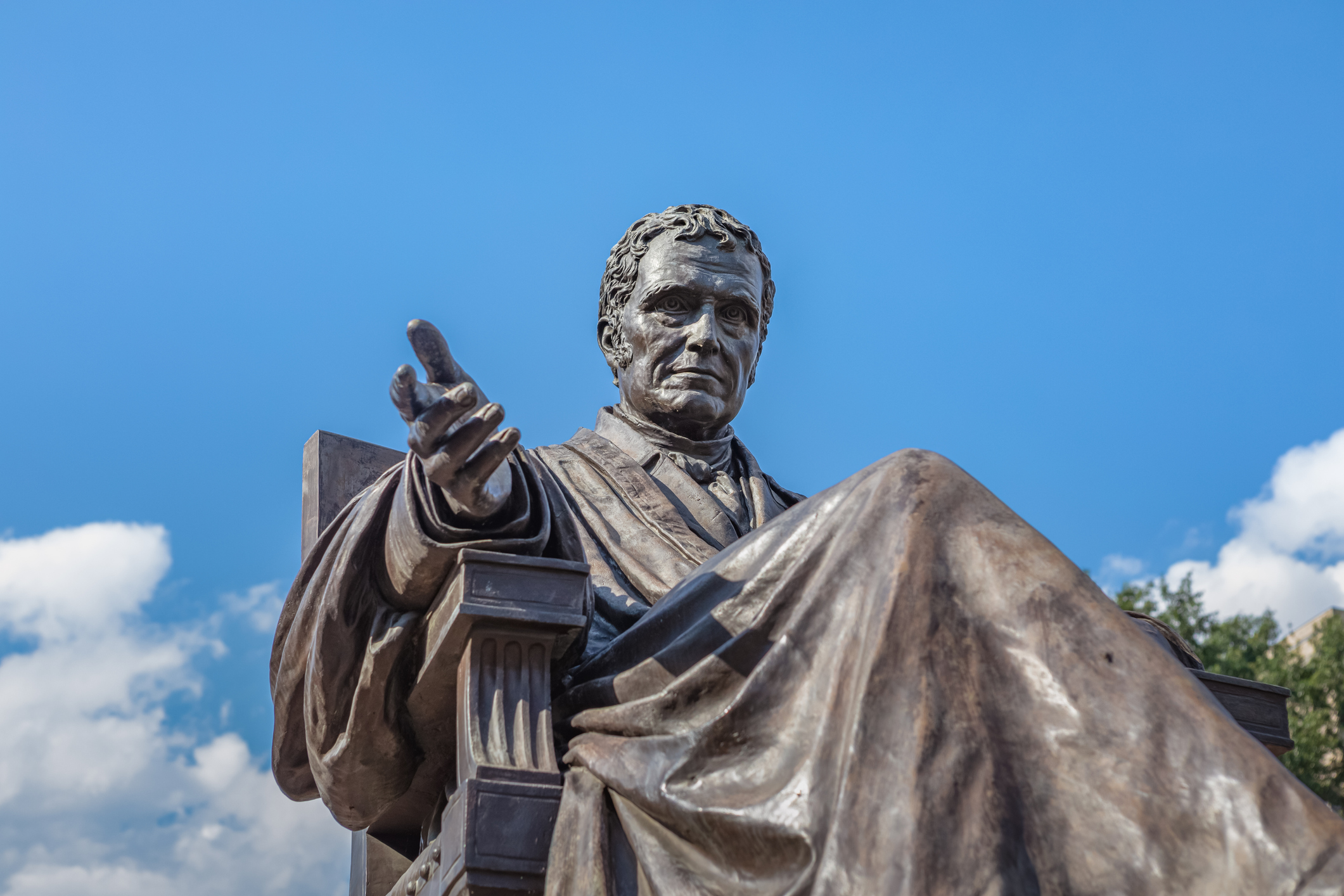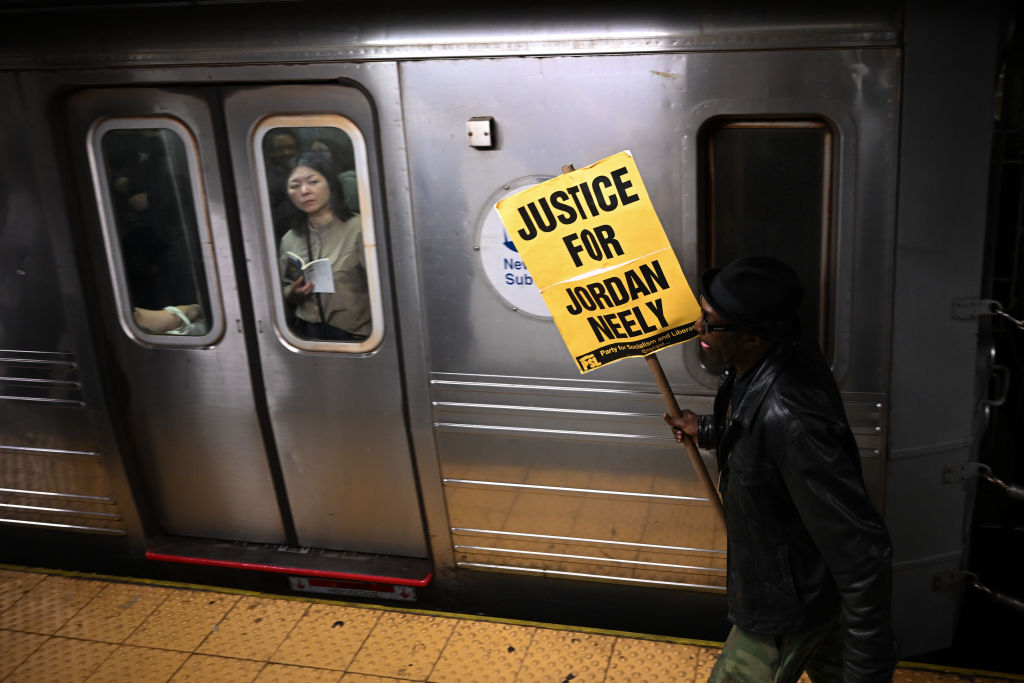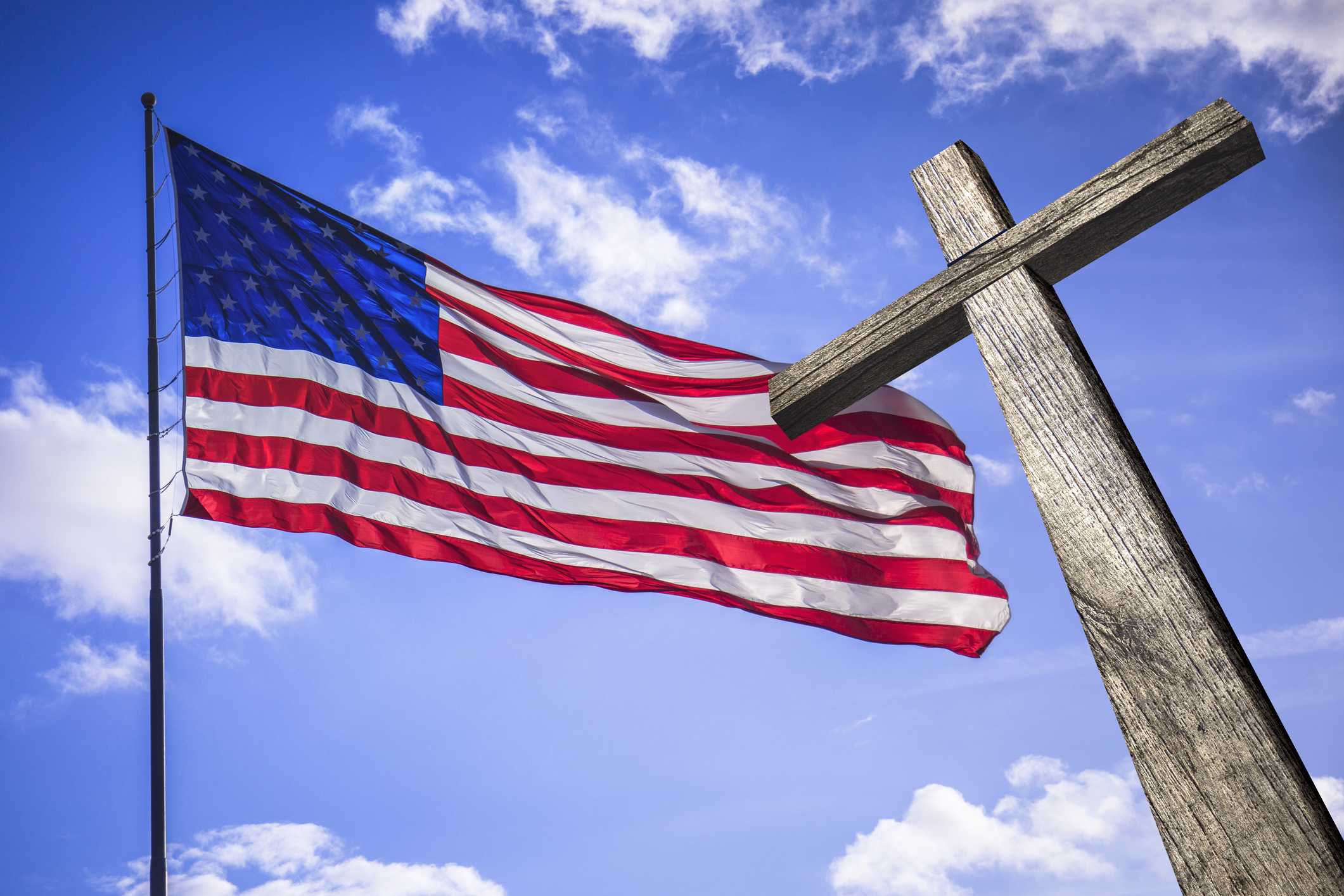At what point does the Revolution swallow itself?
Supreme Distraction

Media attacks on Justice Thomas provide cover to a sinking presidency.
As evidence piles up indicating that President Biden’s family is at the center of a massive international bribery scheme, the mainstream media has been obsessed with documenting the alleged personal corruption of the conservative members of the Supreme Court. Justice Clarence Thomas, whom the liberal media has been denigrating since his nomination three decades ago, has come in for particular scrutiny, but he is not alone. The New York Times recently devoted a lead story to its latest exposé: the fact that the Antonin Scalia Law School at George Mason University had made itself a “friend” of the Supreme Court by lavishing “perks” on its members, such as offering guest teaching gigs in exotic locations like Iceland and Padua, Italy. As explained in a confidential memo issued by a Scalia administrator that the Times obtained, inviting Justice Neil Gorsuch to teach at the school shortly after his confirmation formed part of a strategy that aimed to make it “A Yale or Harvard of conservative legal scholarship and influence.” Other justices invited to teach included Brett Kavanaugh and Clarence Thomas.
But as the Times acknowledges (below the fold), Supreme Court justices are legally allowed to earn outside income from such sources as book royalties, investments, and teaching. In fact, the judicial code of conduct specifically encourages teaching, and “many justices have augmented” their salaries, currently under $300,000, by teaching at schools including Harvard, Duke, and Notre Dame. But the Times nonetheless expresses concern that by making use of generous donations from outside benefactors, the law school has offered “bespoke” arrangements to accommodate the justices. Meanwhile, the Times reports that the school’s “closeness to the justices has coincided with a striking upswing in its funding and academic standing,” which has helped attract “higher-caliber students.” Perhaps even more worrisome, the co-professors who joined the justices in their guest teaching assignments have sometimes filed amicus briefs on cases pending before the Court.
But it isn’t only conservative members of the Court that the law school has been able to entice. Justice Elena Kagan, a liberal, joined Justice Gorsuch on his Iceland trip and emailed a favorable judgment of the school to a George Mason professor. And Justice Sonia Sotomayor, even more consistently on the Left than Kagan, spoke on a panel at the school with Gorsuch that same year.
In sum, the Scalia Law School, far from aiming merely to indoctrinate its students in conservative thought, has sought to promote genuine judicial dialogue—much like one of its chief benefactors, the “conservative” Federalist Society headed by Leonard Leo. Indeed, all but one of the Court’s members attended the ceremony at which the school was rededicated. (So detailed is the Times’ scrutiny of the school’s endeavor to gain influence that it provides minute detail of the menu at a private luncheon Leo hosted in connection with the dedication: “vegetarian or lobster risotto,” with praise for the latter option from future Justice Kavanaugh.)
The most damning evidence the Times marshals is the possibility that the accommodations the law school provided to the justices abroad might have been more lavish than those offered on comparable trips by schools like Tulane, NYU, and Notre Dame—and that the justices’ own staffs may have helped coordinate their travel arrangements. Additional evidence that’s even less compelling includes an occasion when then-Dean Henry Butler, who sat on the board of a Montana-based property-rights organization when the Court was about to hear a case of interest to the organization, encouraged Justice Gorsuch to visit a Montana resort at its expense. Gorsuch didn’t take advantage of the invitation and was one of two dissenting votes against the side the group favored.
The Times also complains that some faculty who served as co-professors subsequently filed amicus briefs in cases that were before the Court, a practice that according to one legal ethics scholar could create “the appearance of impropriety.” However, as the school’s current dean points out, the briefs are often signed by many lawyers, some of them known to the justices—and nothing prevents the justices from discussing pending cases with law professors who haven’t co-taught with them.
In reality, despite its intentions, what the Times story portrays is no scandal but a great success story. Since its renaming, the Scalia Law School has placed an increasing number of graduates in clerkships with federal judges, including a total of 21—ten of them in circuit courts—in 2021 alone. And the school is attracting top students, particularly those with a conservative or libertarian bent—not only because of the job prospects but because of its special programs and increasingly excellent faculty.
The law school’s programs include the C. Boyden Gray Center for the Study of the Administrative State, one of the few law school programs focused on the growing problem of excessive delegation of unchecked discretionary authority to federal agencies like the Environmental Protection Agency, and its Law and Economics Center, which the Times reports has trained over 5,000 federal and state judges to consider the economic effects of their statutory and constitutional interpretations.
Among the school’s distinguished faculty are Jeremy Rabkin, a scholar of constitutional law and one of the country’s leading authorities on international law; David Bernstein, author of some six books including Rehabilitating Lochner, a pathbreaking challenge to the conventional scholarship on a supposedly misguided 1905 Supreme Court decision invalidating a New York State law restricting bakers’ working hours; and Eugene Kontorovich, another international law specialist, a former clerk to Judge Richard Posner, a fellow at Princeton’s Institute for Advanced Study, and a leading opponent of BDS (Boycott, Divestment, and Sanctions) policies aimed at delegitimizing the state of Israel.
For some six decades, Republican presidents typically paid only intermittent or cursory attention to the constitutional views of the judges they nominated to federal courts. Meanwhile, Democratic administrations were much more attentive, seeing the judiciary as a means of advancing policies that were unlikely to pass muster with electoral majorities. Hence while Democrats nominated reliable progressives and believers in a living Constitution like Abe Fortas and Thurgood Marshall, Republican administrations starting with Eisenhower appointed activist liberals like Earl Warren and William Brennan, followed by Nixon appointee Harry Blackmun (who wrote the majority opinion in Roe v. Wade) and Reagan appointee Anthony Kennedy, whose majority opinion upholding the constitutional “right” to abortion in Planned Parenthood v. Casey went beyond Roe in interpreting it as part of the right to “define the meaning of existence” for oneself. In sum, despite such noteworthy conservative appointments to the Court as Antonin Scalia, Clarence Thomas, and Samuel Alito, along with the generally conservative Chief Justices William Rehnquist and John Roberts, only with Donald Trump’s three appointments did the Left lose its generally reliable Court majority—a loss whose legitimacy it has never accepted.
With the restoration of a constitutionalist majority to the Court (at least pending the outcome of the 2024 election), the partisan, anti-constitutionalist Left has proved more determined than ever to undermine the principled foundations of constitutional government. Given the intellectual heft of today’s conservative legal movement, it becomes even more necessary for progressive journalists to accuse institutions like Scalia Law School of all sorts of phony “scandals,” just as it did with Supreme Court nominees like Brett Kavanaugh and Clarence Thomas. At a moment when most of the national press is studiously ignoring the large-scale personal corruption in which the Biden family appears to have engaged, it should not be surprising that partisan journalists have sought to divert readers’ attention by scandalizing perfectly legal junkets on the part of judges whose constitutional views it disagrees with.
The American Mind presents a range of perspectives. Views are writers’ own and do not necessarily represent those of The Claremont Institute.
The American Mind is a publication of the Claremont Institute, a non-profit 501(c)(3) organization, dedicated to restoring the principles of the American Founding to their rightful, preeminent authority in our national life. Interested in supporting our work? Gifts to the Claremont Institute are tax-deductible.
Honest, objective journalism would help restore our fracturing nation.
Our emotional involvement in remote tragedies is exhausting and pointless.
The Left’s latest cudgel against religious conservatives.
Psychedelic-assisted treatment for mental illness is no panacea.
Lab leak discourse disaster, searching for meaning in Chinese propaganda, and an uncomfortable question on the topic of trust.






